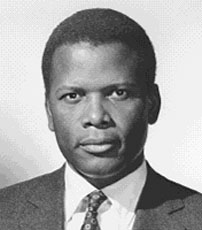I’m not the most attentive watcher of LGBT characters in mainstream media, but I’ve been paying a little more attention than usual lately, especially since the publication of Human X. I have one observation. It’s true that gay characters are springing up all across network television, but I’m not seeing a whole of diversity in their numbers, either. And by diversity, I’m not speaking of skin color, ethnicity, religion, or any other check box on the census form.
The range of gay characters on television in the post-Will and Grace era seems to span the spectrum from A to A. That’s a bit of an exaggeration, but the three series on prime time network television with primary gay characters are all sitcoms. The gay characters generally fit into television’s favorite gay stereotype: they’re cuddly, safe, and non-threatening. They wear sweaters, keep Shitzu dogs for pets, and are about as sexual as Rob and Laura Petrie circa 1961. Yes, I know I’m guilty of overgeneralizing, but I wish I was more guilty of it.
And I have to point out, all of the characters in question are males. Lesbians occupy a completely different dynamic in popular media, serving male titillation far more than LGBT empowerment. In television-land, lesbians all look more like Tyra Banks than Tyne Daly, and mainstream series are never afraid to suggest, especially during sweeps, that a normally straight female character might be tempted, for one episode, to switch teams for a guest star with less makeup but more tattoos and a nose piercing.
Another way of looking at it, a scene in which two prominent male characters kiss each other (and I mean really going at it, not a Rob and Laura “married-people-who-sleep-in-separate-beds” peck), would still launch ten thousand angry letters, a mob of torch-bearing villagers, and a week of special reports on Fox News. Switch the gender of the kissing couple, and it’s just a “very special” episode.
I’ve talked about television so far, so what about the movies? Currently your typical mainstream film is more concerned with blowing up CGI robots, so for the purposes of this discussion, the cinema is useless. I’m sure there are examples from the past to which we could point, but we’re talking about media trends in 2012. These days, mainstream movies have effectively ceded the creative high ground to cable television. Independent films are a whole other matter, of course. Somewhere in that milieu are probably numerous examples that defy the pattern, but I can only comment what I, in my limited experience, have seen.
In either arena, mainstream or indie, dramatic films with gay central characters tend to run toward the tragic story of a protagonist whose quest for love and happiness are frustrated and ultimately crushed under the weight of a cold, homophobic world. What’s largely missing are the role models, the gay characters succeeding on their own terms, dealing with drama apart from the issues presented by their sexuality. I’m not naive enough to think we’re there yet, and that we should be past all the rest, but I do think we’re overdue for a breakthrough.
 Where is the gay Sidney Poitier? Where is the gay Virgil Tibbs? In the sixties, I think it was much harder for an actor like Poitier to leave his race behind and just be an actor in a role, than it would be for Zachary Quinto to do the same with his sexuality. Despite this, Poitier unambiguously established that an African-American actor could be a leading man. No one blinks today when Denzel Washington plays heroes and Morgan Freeman plays God.
Where is the gay Sidney Poitier? Where is the gay Virgil Tibbs? In the sixties, I think it was much harder for an actor like Poitier to leave his race behind and just be an actor in a role, than it would be for Zachary Quinto to do the same with his sexuality. Despite this, Poitier unambiguously established that an African-American actor could be a leading man. No one blinks today when Denzel Washington plays heroes and Morgan Freeman plays God.
Between Poitier and the present, it was also the sitcoms that moved African-American characters closer to the center of the public arena during the 1970s. The Jeffersons, Good Times, and Sanford & Son were not entirely free of stereotypes, but they did have the effect of presenting black characters as families with the same concerns as white America, building up a mass of familiarity that eroded barriers that previously seemed insurmountable. Hour long dramas were either lily white, or the black actors were confined to pimp/drug dealer/mugger roles in cop shows.
We’re not yet at the point where gay characters are can effortlessly to be seen as action heroes, leads in TV cop shows and just plain old leading men, but we could be making more moves in that direction. It probably won’t just happen on its own.
